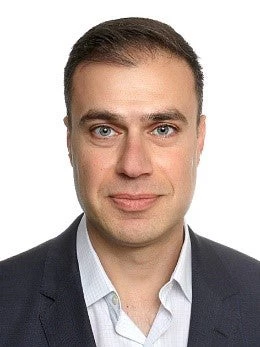
From meal orders to grocery delivery, the online market for food is growing globally. Nielsen reported that global online grocery purchases increased 15% between 2016 and 2018. China generates the most revenue in food delivery with a total of US$38 billion in 2019. Online food sales are also on the rise in the United States. Twenty-three percent of American households bought food online in 2016, a 20% increase from 2014. Russia is no exception to online food retail trends. Between 2015 and 2017, grocery delivery services saw a US$2billion increase (133%).
The boom in online food retail is visible in Moscow. On their way to and from work, commuters cannot avoid the bright yellow jackets and cubic backpacks of Yandex Eats deliverers or the similar lime green outfits of Delivery Club workers. The ubiquity of the delivery service uniform is a sign of the vibrant food delivery culture in Russia’s capital.
How did the city’s culture transition from one of homemade meals to this bustling, digital system? We see three key factors spurring food delivery expansion in Moscow. First, Moscow boasts a dynamic technology sector. According to the RBK 500: Ratings of Russian Business, the majority of the largest IT, telecommunications, media and internet, and electronics companies in Russia are based in Moscow, including Mail.Ru and Yandex. As such, Moscow is often the first to access new technologies.
Second, the proliferation of food delivery technology depends on data access. Food delivery apps depend on complex algorithms to connect customers to deliverers and restaurants as efficiently as possible. Deliveroo, a UK-based delivery service, uses vast quantities of real-time data to assign the best deliverer based on location and transit time, respond to traffic delays, and avoid delivery problems all together. The opening of data with the launch of the Open Data Portal in 2013, served as the basis for 30 mobile applications. With transit data Yandex Eats and Delivery Club, just like Deliveroo in other countries, can coordinate hassle-free deliveries.
Third, Moscow has strong transportation infrastructure, McKinsey ranks Moscow transit in the top ten urban transportation systems globally. Moscow boasts a 14-line metro system in addition to suburban trains, buses, trolleybuses, and route taxis. Recently, the city also introduced Velobike, a shared bike service with stations throughout Moscow’s Garden Ring and similar electric scooter rental station. Food deliverers take advantage of all of these transportation options---metro, bikes, and scooters---with some even facing the cold and snow on their own bikes in the winter.
The uptake of prepared meal delivery in Moscow points to enabling factors that other cities could adopt. Although large IT companies are unlikely to relocate and would not be able to have the same presence in every city as they do in Moscow, regional governments can still encourage growth by supporting platforms for collaboration between IT players and city administrations. Based on the Moscow experience, data openness and transportation system efficiency will also be key points to spreading digital services within and beyond food retail.
On the Agriculture team of the World Bank in Moscow, we are exploring how the same factors enabling the uptake of food delivery may be transforming the larger agricultural sector. In Spring 2019 we will pilot a public-private hackathon model to develop digital technology prototypes for small and medium farmers. Stay tuned for our findings on the emerging benefits of digital technology for small and medium farmers.
We hope to crowd-in some of the world’s best minds to participate in a global conversation on food and technology through the “What’s cooking? Rethinking farm and food policy in the digital age” blog series. We invite people with diverse backgrounds and perspectives to join us and share their comments.



Join the Conversation